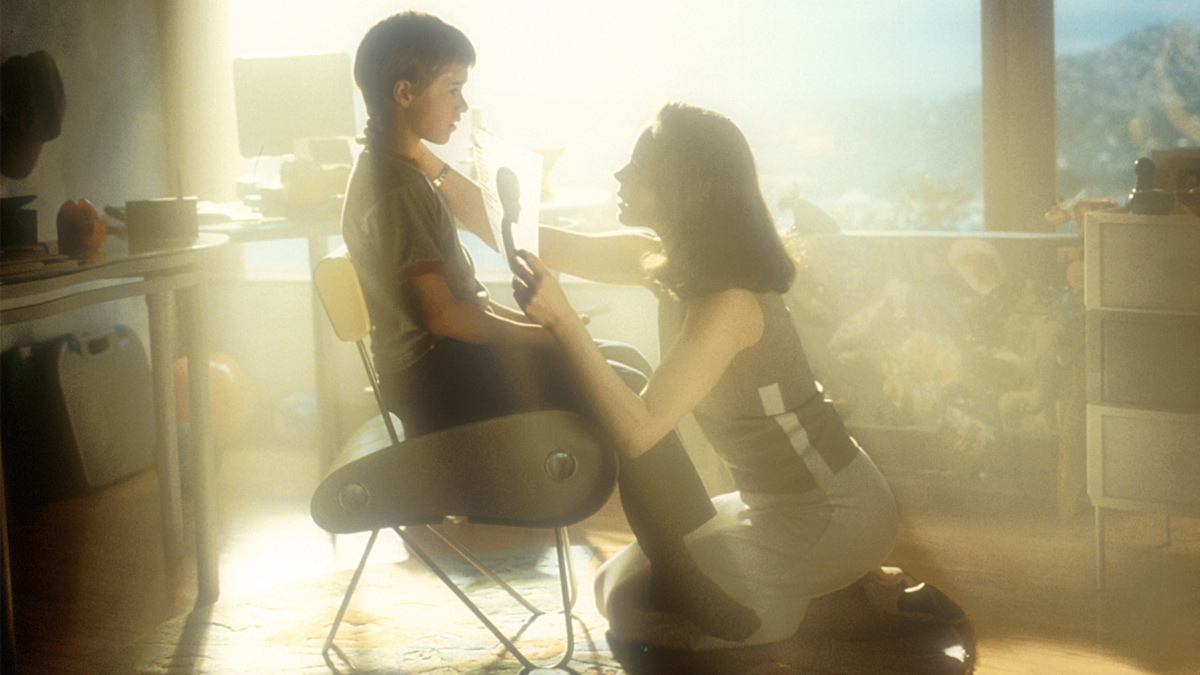
(c) Photofest / Getty Images
“AI” Do androids dream of the Blue Fairy? ※note! Contains spoilers
*This article touches on the ending of the story, so we recommend watching the movie before reading it.
Synopsis of "AI"
David is a boy-type robot with "love" programmed into him. The Swintons adopt him on a trial basis to replace their own child who suffers from an incurable disease. Monica, the mother, begins to think of David as her own child. However, when her biological son miraculously recovers and returns home, David finds himself without a place to belong. Wanting his mother's love, David sets out on a journey in search of a way to become human...
Index
- Close Encounters of the Third Kind with Kubrick
- Super Toys stuck in development Inferno
- Aliens and the Moon
- Kubrick discovers the "dark side"
- Spielberg in Light and Spielberg in Shadow
Close Encounters of the Third Kind with Kubrick
One rainy day, Spielberg, a high school student, was waiting in line at a movie theater in San Jose. His father suddenly jumped out of his car after spotting his son. He handed him a letter that said, "Appear for a military physical examination." In the United States, there is a system called the Selective Draft Registration System, and all men between the ages of 18 and 26 are required to register. Spielberg was shocked, realizing that "my life may end within the next year." Thinking about how his son was feeling, his father gently told him, "Let's go home." However, Spielberg, a born and bred movie buff, replied, "No, I want to see a movie."
I rushed to the cinema and was completely engrossed in the film. It had a strong black humor and the actors' amazing performances. I was so engrossed in this quirky sci-fi comedy that I completely forgot about my conscription letter. That's how destructive the film was. The title of the film was " Dr. Strangelove or: How I Learned to Stop Worrying and Love the Bomb " (1964). It was the moment Steven Spielberg had his first "first Contact" with a Stanley Kubrick film.
His "second Contact" with Kubrick was when he saw 2001: A Space Odyssey (1968) as a university student. He drove to the Pantages Theatre in Hollywood, and waited three hours to watch the movie because of the long line. When he finally entered the theater, Spielberg's expectations were sky-high. The sci-fi epic he witnessed on the big screen far exceeded his expectations. It was an intense visual experience, as if he was touching the depths of space. His friends said, "Watching a movie after taking drugs enhances the experience," but Spielberg got higher than anyone else without drugs. Kubrick's visual magic must have had a direct effect on his mind and had a major impact.
Of course, he was also deeply moved by " A Clockwork Orange " (1971). Violence. Violence. Violence. A near-future carnival of violence smeared with violence. Spielberg felt that "it's a film of complete despair towards society," and even fantasized that "Kubrick's despair must be the reason he lived in seclusion in the English countryside." For him as a young film buff, the name Stanley Kubrick had begun to have a special meaning.
Spielberg and Kubrick first made "Close Encounters of the Third Kind" in 1980. The young film buff had released a string of hits, including " Jaws " (1975) and " Close Encounters of the Third Kind of the Third Kind" (1977), and was already seen as a young, talented filmmaker in Hollywood. He visited Kubrick, who was building the set for " The Shining " (1980), and they had a long discussion about film. Kubrick had also been paying attention to the new talent that had descended upon Hollywood. The two great film directors would continue to foster a friendship that would last for many years.
Super Toys stuck in development Inferno

